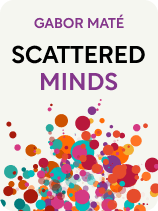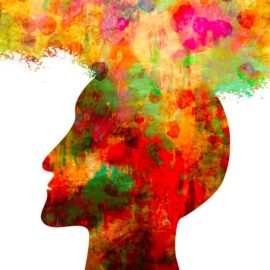

This article is an excerpt from the Shortform book guide to "Scattered Minds" by Gabor Maté. Shortform has the world's best summaries and analyses of books you should be reading.
Like this article? Sign up for a free trial here.
Is ADHD caused by bad parenting? How does the bond with your parent affect your cognitive-emotional development?
ADHD is one of the most common disorders in the world, but many people are still unaware of the root causes of it. While this isn’t the case for everyone, Scattered Minds by Gabor Maté suggests that one explanation for an ADHD diagnosis is a negative relationship between parent and child.
Continue reading for a more in-depth explanation of a parent’s influence on their child’s development.
How the Parent-Child Bond Affects Your Development
Is ADHD caused by bad parenting? Dr. Gabor Maté explains that the parent-child bond influences your cognitive-emotional development in two ways:
First, consistently positive parent-child interactions produce positive feelings, which set off neurochemical processes that promote the physical growth of your brain by building new neural pathways and strengthening existing connections. On the other hand, if you don’t have consistently positive interactions with your parents, you become physiologically stressed. Stress sets off a neurochemical reaction that inhibits neural growth. If you endured a lot of early childhood stress, your brain simply didn’t have the opportunity to develop as it typically would.
(Shortform note: The kind of stress that can have adverse, long-term effects on the development of your brain is known as toxic stress—this results when children are exposed to serious stressors that go unresolved for long periods of time, like abuse or dire poverty. Research indicates that other kinds of stress—including positive stress resulting from normal childhood experiences like the first day of school, and tolerable stress that results from more severe hardships but is mitigated by supportive adults—do not impede brain development.)
Maté argues that the neurological effects of early childhood stress can be seen most clearly in the prefrontal cortex (PFC), which studies suggest is underdeveloped in people with ADHD. The PFC is the part of your brain responsible for managing attention, impulse control, and stillness—if your PFC is underdeveloped, you lack the physiological structure needed to support typical functioning in those areas.
(Shortform note: ADHD brains are physiologically different from neurotypical brains in at least seven ways. This includes an underdeveloped PFC, as well as an underdeveloped cerebellum and amygdala, which have roles in the regulation of stillness/movement and emotions, respectively. Interestingly, the hippocampus, which is associated with memory, tends to be overdeveloped in people with ADHD; experts believe this is the brain’s attempt to compensate for deficits in other areas of the brain.)
Second, consistently healthy parent-child interactions teach you important psychological skills—like how to manage your attention, control your impulses, and regulate stillness. For example, Maté explains that you typically learn how to pay attention by having positive interactions with your parents—you want more of the feel-good endorphins these interactions give you, so you learn to focus on your parents when they’re focused on you.
(Shortform note: In addition to affecting your attention and impulses, parent-child interactions can also affect your ability to handle emotions, starting a cycle of unhealthy parent-child relationships. In Adult Children of Emotionally Immature Parents, psychologist Lindsay C. Gibson explains that when parents restrict their children’s freedom to express their emotions, the children may become self-preoccupied, defensive, and psychologically limited, which in turn has an impact on their ability to nurture their children’s psychological needs. Fortunately, it only takes one person to break the cycle—if you learn how to meet your own psychological needs, you can pass those skills on to your children.)
On the other hand, if interacting with your parents was stressful, you never got the opportunity to learn these skills. For example, Maté believes that your difficulty with attention stems from when your brain automatically dissociated your attention from the discomfort you were experiencing when your parents stressed you out. Dissociation is an automatic survival mechanism: Distress takes a physical toll on your body, so your brain protects you by dissociating from your stress. If you had enough negative interactions with your parents, inattention gradually became your baseline state. As a result, you’re only able to pay attention when it’s emotionally rewarding enough—otherwise, it requires an immense conscious effort.
(Shortform note: Dissociation is not a symptom of ADHD, but people with ADHD may dissociate when they experience trauma and may be more likely to experience trauma. If you struggle with dissociation, grounding techniques that help you connect with your present reality may help. For example, one common grounding technique is to list things you can hear, smell, taste, touch, and see.)

———End of Preview———
Like what you just read? Read the rest of the world's best book summary and analysis of Gabor Maté's "Scattered Minds" at Shortform.
Here's what you'll find in our full Scattered Minds summary:
- How ADHD is caused by early childhood stress that hinders development
- Why medication isn't the best way to treat ADHD
- How society can prevent ADHD in future generations






